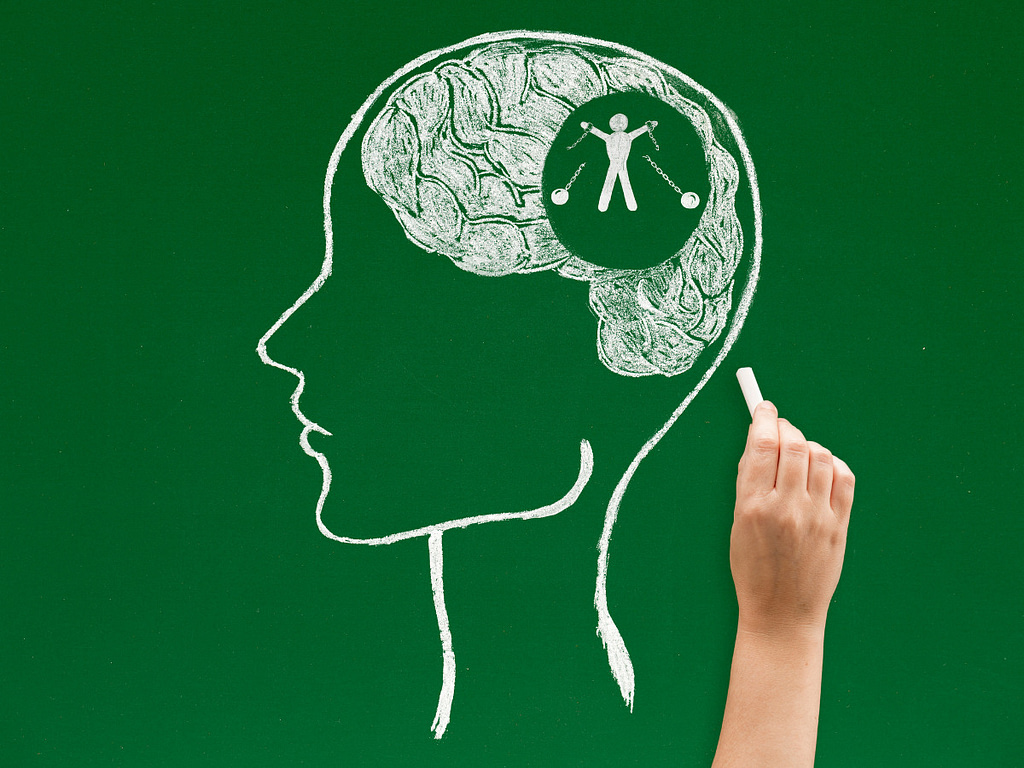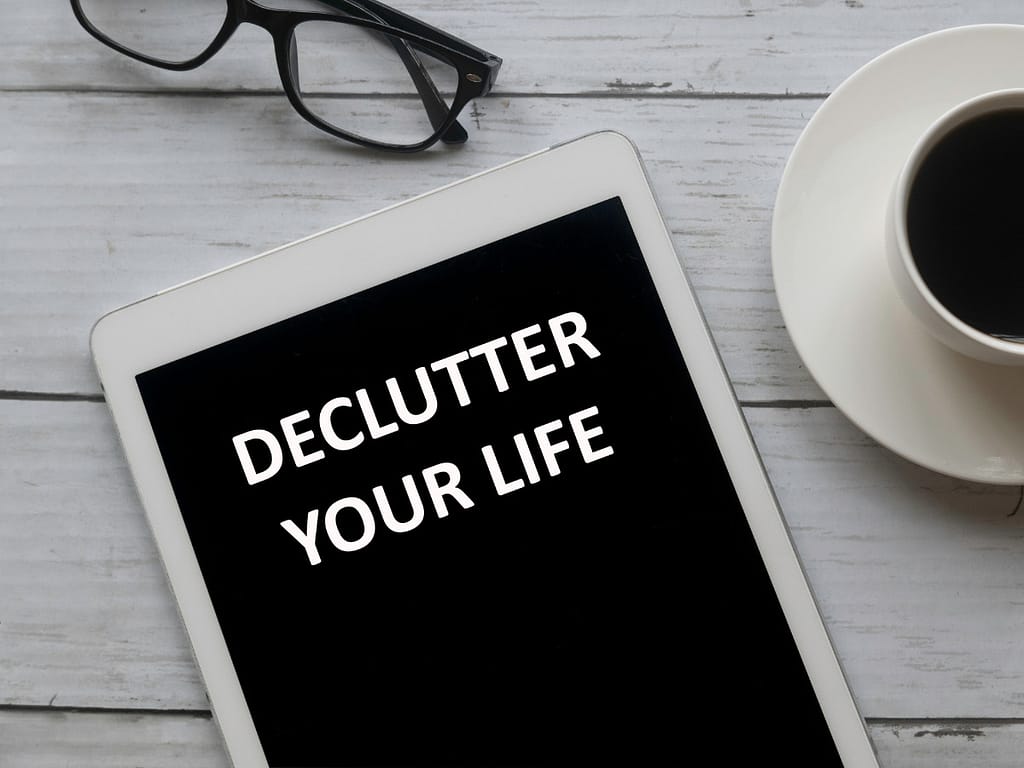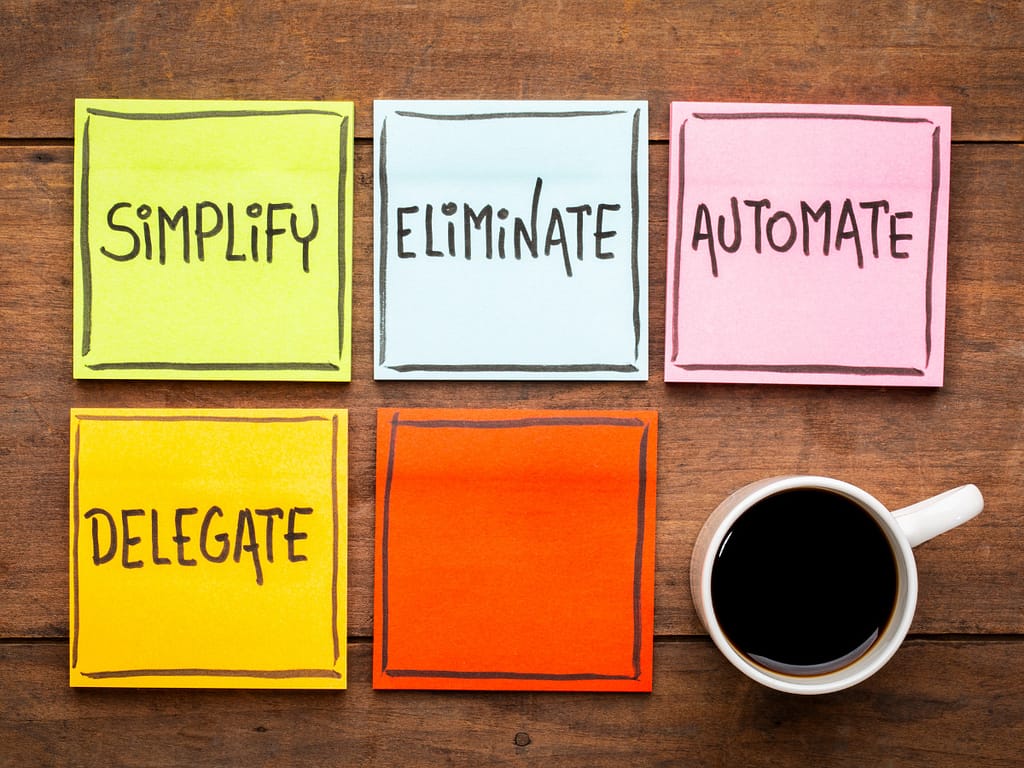Finding Serenity Amidst Overstimulation: A Guide for Overwhelmed Moms
Perhaps you’re overwhelmed by overstimulation, feeling like a mere robot, going through the motions on autopilot. A mere shell of your former self, devoid of any spirit. Instead of truly living, it feels like you’re just surviving day by day, constantly bombarded with sensory overload. All your energy is drained by the demands placed upon you and the constant need for attention from others. You might be experiencing depression and burnout, reaching a point where you’re unsure of your place in all of this. Lost and lacking solutions, you feel completely uncertain about what to do next.
Previously, I held onto the belief that asking for assistance or finding someone to share my responsibilities would be the ultimate solution to easing my burdens. Undoubtedly, having support in our lives can make a significant difference. However, it is crucial to acknowledge that even by implementing minor changes in our routines and mindset, we have the power to completely transform our reality, daily experiences, and overall mental well-being. At times, we may find ourselves too worn out and preoccupied to realize the immense potential for positive change that lies within us. But with a bit of time, patience, and self-reflection, you can uncover your own capacity for growth and achieve the sense of relief we’ve been seeking.
I applaud you for listening to your inner voice, the one that alerted you to the need for change, and ultimately led you here. The fact that you are researching and seeking understanding shows that you haven’t given up on yourself or life. Take a moment to truly acknowledge this act of self-love and be proud of yourself. Through the steps you are taking, you are gradually veering onto a new path, potentially transitioning from your current situation to a new life. This doesn’t mean it will be effortless or a straightforward journey, but it holds great promise.
Now, I want you to close your eyes and take the deepest breath you have taken all day. As you exhale, remind yourself out loud, “I’ve got this. It’s going to be okay. I’m going to be okay.”
Now let’s begin…
Introduction
Being a mom is a beautiful and rewarding experience, but it can also be overwhelming and mentally draining. Constant multitasking, juggling numerous responsibilities simultaneously, can easily be overstimulating, leaving us feeling irritable and burnt out. In addition, the constant need to be present for our children, while also managing household tasks and possibly balancing a career, can lead to a state of overstimulation. Being surrounded by overlapping sounds and demands further intensifies this feeling. However, it’s important to remember that feeling this way does not make you a bad mom. Rather, it serves as a signal that you need to prioritize self-care and make small changes to create a calmer and more balanced environment. In this blog post, we will explore the signs of an overstimulated mom, how to deal with overstimulation, and practical tips for managing it effectively.

What are some signs of overstimulation, overwhelm or burnout?
Motherhood is a rewarding but demanding role, and it’s important to recognize the signs of overstimulation and burnout. Pay attention to these indicators, as they may indicate the need for self-care and support. Some common signs include:
- Persistent exhaustion, both physically and emotionally.
- Feeling like a robot on autopilot, merely surviving each day.
- Sensory overload from constant touch, noise, and demands.
- Difficulty concentrating, feeling mentally scattered.
- A sense of being lost and disconnected from yourself.
- Increased irritability, shorter temper, and resentment towards loved ones.
- Constantly feeling overwhelmed and unable to catch up.
- Trouble sleeping or experiencing restless sleep.
- Physical symptoms such as headaches or muscle tension.
- Difficulty making decisions or feeling paralyzed by indecisiveness.
- Neglecting self-care and putting others’ needs before your own.
- Lack of motivation and reduced interest in activities.
- Forgetfulness and difficulty keeping track of everyday tasks.
- Social withdrawal and isolation from friends and family.
- A constant feeling of guilt or inadequacy.
- Increased reliance on caffeine or other stimulants to keep going.
- Decreased patience and tolerance for minor challenges or disruptions.
- Reduced creativity and difficulty finding joy in hobbies or interests.
- Struggling to find a healthy work-life balance.
- Obsessive thoughts or worries about parenting and being a “perfect” mom.
- Frequent crying or emotional outbursts.
- Neglecting or ignoring personal goals and aspirations.
- Feeling trapped or stuck in the routine of motherhood.
- Chronic feelings of anxiety, sadness, or hopelessness.

How overstimulation may affect our relationships with our children and partner?
When we are constantly overwhelmed or overstimulated, it can interfere with our ability to be present, engaged, and attentive to our child’s needs. Overstimulation can have profound effects on our relationships with our children and partner, leading to reduced quality time, increased irritability, lack of empathy, distractedness, decreased intimacy, and heightened stress and tension. By recognizing the signs of overstimulation you can take steps to manage it effectively and create healthier and more fulfilling relationships with our loved ones.
Here are different ways overstimulation can impact our relationships:
- Reduced quality time: Overstimulation can lead to feeling overwhelmed and drained, resulting in less time and energy available for spending quality time with our children and partner. This can lead to feelings of neglect or detachment, negatively impacting the bond we share.
– - Increased irritability: When we are constantly overstimulated, we may become more irritable and easily frustrated. This can result in shorter tempers and less patience in our interactions with our children and partner, leading to conflict and strained relationships.
– - Lack of empathy: Overstimulation can make it difficult for us to be fully present and empathize with others’ needs and emotions. This can create a communication barrier between us and our loved ones, making it harder to connect and understand each other’s perspectives.
– - Distraction and absent-mindedness: Overstimulation can make it challenging to focus and be present in conversations and interactions. We may find ourselves constantly distracted or lost in thought, which can make our loved ones feel neglected and unimportant in our lives.
– - Decreased intimacy: Overstimulation can take a toll on our physical and emotional energy, leading to a decrease in intimacy and affection with our partner. This can result in feelings of distance and a decline in overall relationship satisfaction.
– - Increased stress and tension: Continuous overstimulation can contribute to higher stress levels and a general sense of tension within the family dynamic. This can lead to constant conflict and negativity, adversely affecting the overall harmony of the relationships.
–

How to deal with being an overstimulated mom?
- Acknowledge and accept your feelings: Overstimulation can often lead to feelings of overwhelm, stress, and frustration. It’s important to acknowledge and accept these feelings without judgment. Take the time to reflect on your emotions and write them down, allowing yourself to gain a better understanding of what triggers your overstimulation and any patterns that may emerge.
– - Set clear boundaries and learn to say no: One of the key ways to manage overstimulation is by setting clear boundaries for yourself and your family. This means learning to say no when necessary and not taking on more responsibilities or commitments than you can handle. This can help you avoid becoming overwhelmed and give you space to prioritize your own needs.
– - Free yourself from unnecessary guilt: As a mom, it’s common to feel guilty about taking time for yourself or not being able to do it all. However, it’s important to recognize that your well-being is crucial for both yourself and your family. Free yourself from unnecessary guilt by reminding yourself that it’s perfectly okay to prioritize self-care and take breaks when needed.
– - Prioritize your well-being: In order to prevent overstimulation, it’s important to prioritize your well-being. This means giving yourself permission to take breaks, practicing self-care activities that bring you joy and relaxation, and taking care of your physical and mental health. Make time for activities that recharge you, whether it’s exercising, meditating, or pursuing hobbies. Remember that taking care of yourself is not selfish but necessary for you to be the best mom you can be.
– - Choose your battles wisely: Overstimulation can often make every little thing feel like a big deal. Learning to choose your battles wisely can help you conserve your energy and avoid unnecessary stress. Ask yourself if something is truly important and worth getting worked up over. This can help you let go of the need for perfection and focus on what truly matters.
– - Seek support: Dealing with overstimulation as a mom can feel overwhelming, but remember that you don’t have to do it alone. Seek support from trusted family members, friends, or community groups. It can be helpful to have someone to talk to, vent your feelings, and offer advice or assistance. Surrounding yourself with a supportive network can make a significant difference in managing overstimulation and finding balance in your life.
–

How to Manage Overstimulation and Avoiding Overwhelm as a Mom:
1. How to create a calm environment
Creating a calm environment is essential for promoting your mental health and well-being. It can help counter overstimulation by providing a sense of relaxation and reducing the excessive sensory input. Calm surroundings reduce external distractions, allowing us to focus better, rejuvenate, and recharge ourselves. This can be beneficial for moms who often face high levels of stimuli and responsibilities, providing them with a peaceful space to unwind and practice self-care. Here are some tips on how to achieve this:
- Declutter your physical space: A cluttered and disorganized environment can contribute to feelings of overwhelm and stress. Take the time to tidy up and get rid of any unnecessary items that could be causing sensory distractions. Remove clutter from surfaces, organize your belongings, and create a clean and peaceful space to relax in.
– - Establish daily routines and guidelines: Having structure and routines can help create a sense of order and predictability. Set realistic goals for yourself and your family, establish regular meal times, bedtimes, and create a schedule that allows for self-care and relaxation. This can help reduce chaos and create a calm and stable environment.
– - Explore calming techniques: Different calming techniques work for different individuals, so it’s important to find what works best for you. Consider incorporating aromatherapy into your environment by using essential oils that promote relaxation, such as lavender or chamomile. Experiment with soothing music or nature sounds that can help drown out external noises and promote a peaceful atmosphere. Creating soft lighting, such as using candles or dimming the lights, can also contribute to a calming environment.
– - Cultivate a supportive and understanding environment: Surround yourself with a support system that understands and respects your needs. Communicate openly with your partner, family members, or close friends about how you’re feeling and what you need from them. Establish boundaries and ask for help when necessary. Having a support system that is understanding and willing to help can significantly reduce stress and create a more peaceful environment.
Remember that creating a calm environment is an ongoing process, and it’s important to be patient and kind to yourself as you navigate through it. Prioritize your mental health and well-being and make self-care a priority.

2. Self-Care Strategies and Tips
Creating Quiet and Recharging Spaces:
- Designate specific areas in your home as quiet spaces where you can retreat and recharge. These can be a cozy corner in your bedroom, a dedicated reading nook, or a peaceful spot in the backyard.
- Personalize these spaces with calming elements like soft lighting, comfortable seating, and soothing scents.
- Make it a habit to spend a few minutes in these spaces every day, allowing yourself to relax, reflect, and reset.
Establishing Regular Self-Care Routines:
- Prioritize self-care as an essential part of your routine. Schedule time for activities that rejuvenate and nourish you, such as meditation, exercise, journaling, or reading.
- Find ways to integrate self-care into your daily life, even if it’s just for a few minutes. For example, practice deep breathing exercises during moments of stress or listen to a guided meditation before bed.
- Experiment with different self-care practices to discover what works best for you and tailor them to suit your lifestyle and preferences.
Managing Overwhelm through Task Management:
- Break tasks into smaller, more manageable chunks to avoid feeling overwhelmed. Create a to-do list and prioritize tasks based on their importance and urgency.
- Delegate responsibilities and share the workload with your partner, family members, or trusted support network. Communicate your needs, ask for help, and let go of the need to do everything on your own.
- Set realistic expectations for yourself and be flexible with your goals. Remember that you don’t have to be perfect, and it’s okay to ask for assistance or adjust your plans when needed.
Practicing Mindful Parenting and Simplifying:
- Focus on quality time rather than quantity. Mindful parenting involves being fully present, attentive, and engaged during interactions with your children, which can lead to a deeper connection and reduced feelings of overwhelm.
- Simplify your schedule by evaluating and eliminating non-essential tasks or commitments. Learn to say no when necessary and prioritize activities that align with your values and well-being.
- Seek support from other parents or join parenting groups where you can share experiences, tips, and strategies for managing the challenges of motherhood.
Seeking Help and Maintaining Mental Well-Being:
- If feelings of overwhelm persist or significantly impact your mental health, consider seeking professional help. A therapist or counselor can provide guidance, support, and tools to navigate the challenges of motherhood and manage stress.
- Be proactive in maintaining your mental well-being by staying connected with loved ones, staying active, and engaging in activities that bring you joy and fulfillment.
- Practice self-compassion and forgive yourself for any perceived imperfections. Remember that being a mom is a demanding role, and it’s okay to prioritize your well-being and seek help when needed.
Overall, managing overstimulation and avoiding overwhelm as a mom involves prioritizing self-care, creating boundaries, seeking support, and being mindful of your own needs. Remember that taking care of yourself is not selfish but vital for your well-being and ability to be the best mom you can be.

Support Resources for Overstimulated Moms
There are various resources available to help you navigate through your challenges and alleviate the stress. Here are some key support resources for overstimulated moms you could potentially benefit from:
- Local Mom Support Groups or Online Communities:
Reaching out to local mom support groups or online communities can provide a valuable platform for connecting with other moms who are going through similar experiences. These groups often offer a non-judgmental space where moms can share their challenges, seek advice, and gain insights from women who understand what it’s like to be overstimulated. Support groups can be found through community centers, local organizations, or even on social media platforms dedicated to motherhood.
– - Therapy or Counseling:
Sometimes, the challenges and emotions that come with motherhood can feel overwhelming and require professional support. Seeking therapy or counseling can provide a safe space for moms to explore their feelings and develop coping mechanisms. A therapist or counselor can offer guidance, tools, and strategies to manage stress, anxiety, and any other mental health concerns. They can also help moms develop healthy boundaries, communication skills, and self-care routines, enabling them to navigate the demands of motherhood more effectively. - Self-Help Books or Podcasts:
Engaging with self-help books or podcasts centered around motherhood and self-care can be a valuable resource for overstimulated moms. These resources often offer practical tips, coping mechanisms, and advice from experts that can help moms navigate the challenges of motherhood. They may cover topics such as managing stress, setting boundaries, self-compassion, and finding balance. Listening to podcasts or reading books during moments of downtime can provide moms with inspiration, validation, and a sense of connection to others who have faced similar struggles. Here are a few examples:- Book: “The Fourth Trimester: A Postpartum Guide to Healing Your Body, Balancing Your Emotions, and Restoring Your Vitality”, by Kimberly Ann Johnson. This book explores the postpartum period, offering insights and practical advice on navigating the physical, emotional, and mental challenges that many new moms face. It addresses topics such as healing after childbirth, managing overwhelm, establishing boundaries, and self-care practices.
- Book: “Present Over Perfect: Leaving Behind Frantic for a Simpler, More Soulful Way of Living”, by Shauna Niequist. While not exclusively focused on motherhood, this book addresses the pressure to constantly be busy and prioritize perfectionism. It offers valuable insights and practical strategies for slowing down, decluttering life, and finding more fulfillment in everyday moments. The book encourages moms to prioritize self-care, set boundaries, and embrace imperfections.
- Podcast: “The Mom Hour”, by Meagan Francis and Sarah Powers. In this podcast, Meagan and Sarah share their experiences and insights on various aspects of motherhood. They discuss topics like managing overwhelm, finding balance, and self-care strategies. They also interview experts and other moms to provide different perspectives and practical advice for navigating the challenges of motherhood.
These are just a few examples, there are countless books and podcasts available that can provide support and guidance to overstimulation. When choosing self-help resources, consider your specific needs and preferences.
Conclusion
Dealing with overstimulation as a mom is a real and valid struggle. However, by taking small steps towards self-care, setting boundaries, and seeking support, you can find balance, peace, and enjoy motherhood more fully. Remember, you are not alone in this journey, and prioritizing your well-being ultimately benefits both you and your family. Embrace the power of self-care and create a calm and fulfilling environment for yourself and your loved ones. You’ve got this, and everything will be okay.





Leave a Reply